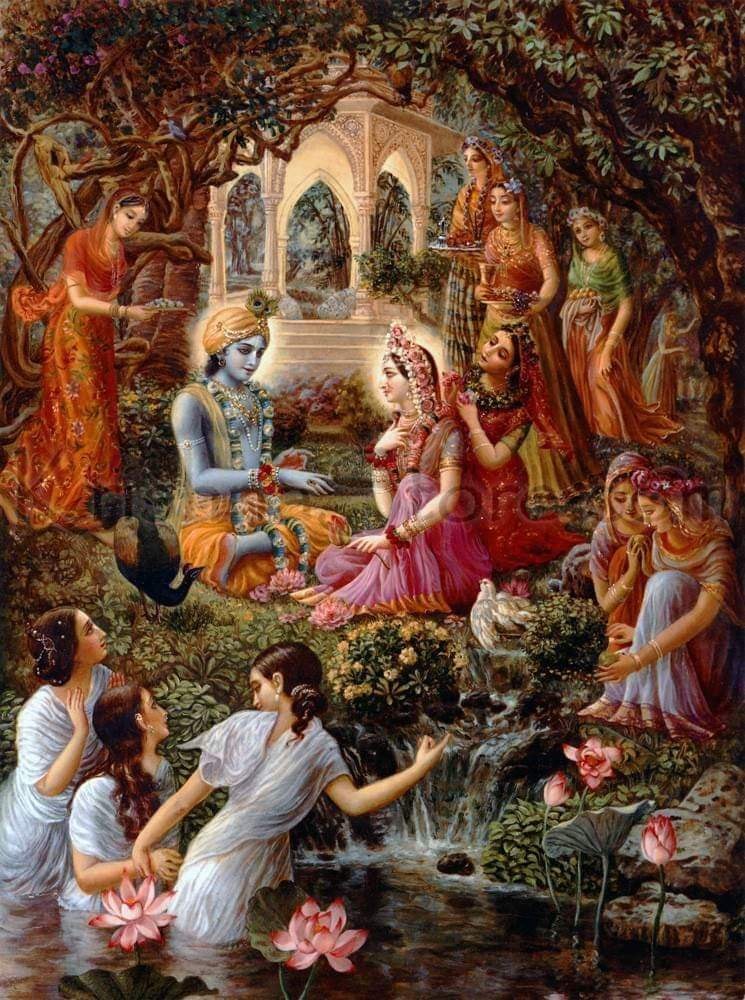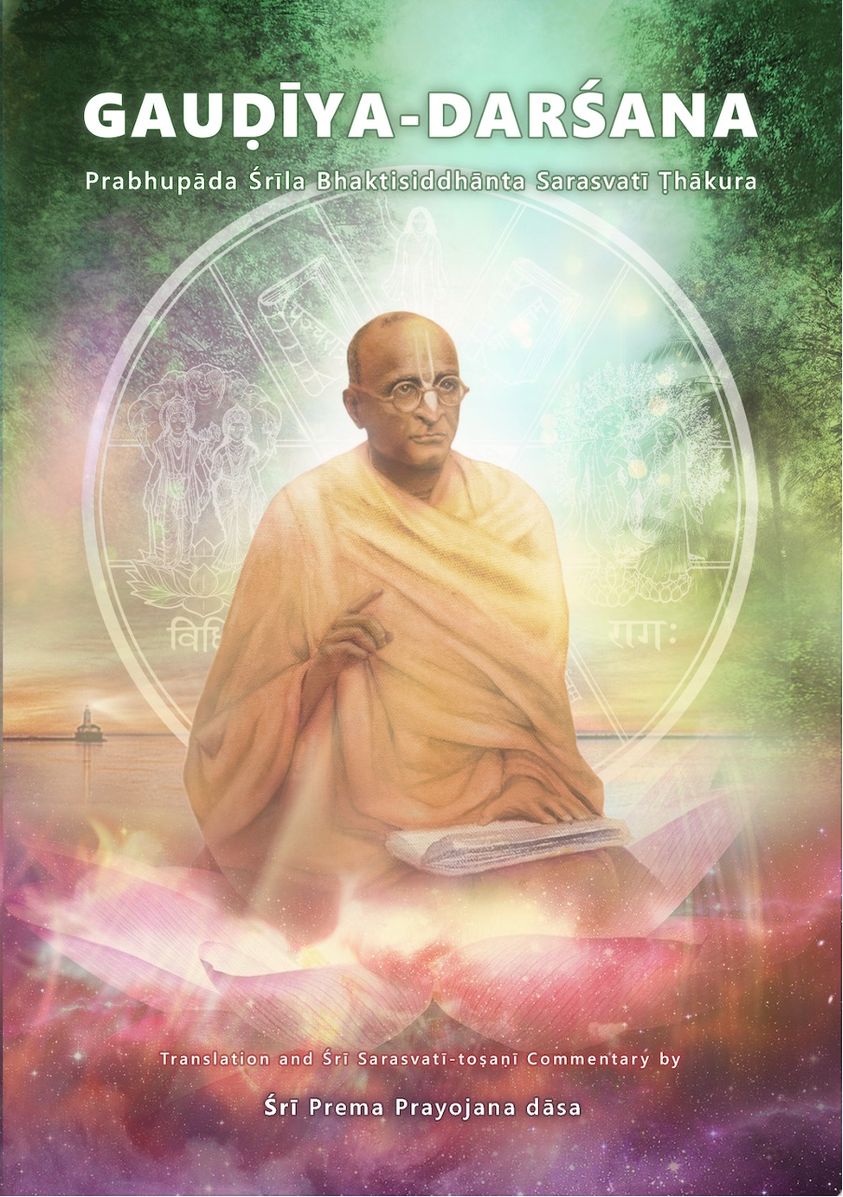King James Bible (Cambridge Ed.) "Butter and honey shall he eat, that he may know to refuse the evil, and choose the good."
At the end of the following article are several Bible references regarding Vegetarianism and kindness to animals. Please also download
You mean thats in the Bible? PDF
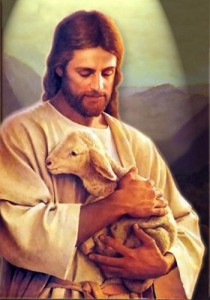
Jesus and first Christians were vegetarians and friends of animals
By Moris Hoblaj, Theology and Sociology graduate, writer of critical articles about church.
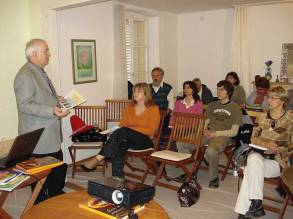
Moris Hoblaj
Does God’s commandment „Do not kill!“ refer only to people or also to animals? It is difficult to picture Jesus telling people that slaughtering and torturing animals is alright!
God is perfect and when he says „Do not kill!“, he means everything that lives and feels. This commandment includes every living creature, both people and animals, and in broader sense even plants. God let us know through His prophets that He does not want us to kill the animals. Prophet Isaiah wrote: „Killing an ox is the same as killing a person.“ It is interesting that the Catholic Church does not respect this part of the Bible, has nothing against killing animals and does not support vegetarians. In the Middle Ages, at the time of inquisition, Catholic Church was even prosecuting and killing the members of all religious communities, where vegetarianism was a part of religious belief, such as Manicheans, Cathars, Bogumils and several others. It is known that members of these communities were against torturing and killing animals for food out of their belief and respect for animals.
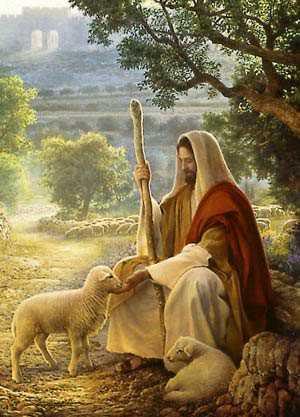
The Catholic Church should therefore fight for the rights of animals. Why is this not so?
The reason seems to be that the self called followers of Jesus Christ with different mitres and tiaras, Holy Fathers, Excellencies, Cardinals and Bishops preferred power over people and animals to the succession of Jesus Christ, who was a pacifist and loved animals. Almost every Christian Institution betrays Jesus Christ and His teaching with its attitude to animals and definitions of animals. This is stated also in authentic historic documents that confirm that Jesus of Nazareth and first Christians were vegetarians and friends of animals. The Bible includes the words of Jesus:„Whatever you do to one of the living beings, you do it to Me.“ Jesus was not a hunter as many of His self called followers, who are proud that they were or are passionate hunters, which are murderers of the animals, such as Cardinal Franc Rode.
Why does the Church have such underestimating attitude to animals and people with different views?
This is a wide-ranging issue which reaches the core of state Catholicism in history as well as today. Today it is no secret that the bloody history of the Church is founded on the so called theological doctrines, such as doctrine about a fair war, existence of eternal curse, non-existence of soul before birth in the case of humans as well as animals. Just by reading the Bible anyone can be sure that the prophets and Jesus of Nazareth loved animals, while religious castes and their followers did not or loved just their dead bodies. They used dead bodies of the animals in pagan ritual worshiping of God, such as blessing of meat at Easter or Hubert’s masses.
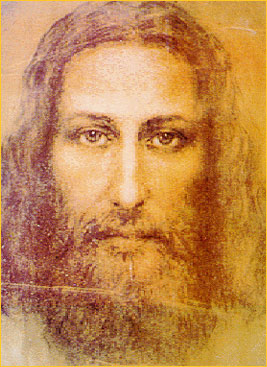
In order to hide from the followers the non-acceptance of the prophets and Jesus of Nazareth, instead of prophetic divine declarations the clergy created its own absolutistic and forced dogmatic theology, which is far from divine.
You are asking, why the Church underestimates animals? It is known from prophetic essays that animals are constantly connected to their Creator, that they are constantly worshiping Him and that He immensely loves them. This may be the reason for its underestimating attitude to animals. Church theology convinced people that animals have no soul and thus people learned to have materialistic attitude to animals. To people animals became merely soulless dead objects that can only be used for food and clothes and towards which theology allows any possible brutality, such as laboratory tests. Although people, especially politicians, should know from the Bible that religious caste caused Jesus of Nazareth a great deal of problems, prosecuted him, slandered him and at the end crucified him because of his teaching that God and people do not need clergy, these religious people and politicians remain faithful, throughout the history and today, to the clergy, who according to facts manipulates them from religious as well as from political and economical point of view. It is true that today the Church cannot kill people, who oppose it, or burn them at the stake, but it can discriminate and slander them and together with its political vassals and different insulting and dangerous concepts, such as sect or sectarian, makes them look bad in public.
It is obvious that parts about Jesus’ love for animals were deleted from the Bible. When and why?
In all religions power and money always play the key role. Historical facts tell us that in year 313 Constantine’s edict replaced religious leaders, who were the carriers of prophetic words, with managers of material properties of the first Christians – deacons, elders and Bishops, who made a pact with Constantine. With his help they became leaders of a privileged religion and formulators of state authority. For these favors the Emperor Constantine requested counter favors of the new state religion, which he also got. Thus, in comparison to the first Christians, who were not soldiers and were against war, the state church, later Catholic Church, promised to Emperor its support in recruiting soldiers. It promised the Emperor support in warfare and to fight against everything that the Emperor would not approve of, among other things also against other religious movements. This newly based state religion also needed a certain authorized Holy Book, the Bible, in which the Christians would have to believe and which would bring power to clergy over everything and everybody as well as wealth and luxury.
Many experts and theologians are of the opinion that a lot of today’s Biblical Essays were manipulated at the very beginning of their formation, as also tell us authentic historical records and authors or translators – formulators of today’s Bible.
Can you state an example of forgery of God’s word?
One example is St. Hieronimus who was given a task by Pope Damasus to formulate and translate a unique work. This work is today named the Vulgate or the Bible. Hieronimus wrote to the Pope: „…I have several different translations of which I have to make one uniform work, which is impossible, therefore I have to formulate something completely new and that will probably make me a forger of holy essays.“ Hieronimus had to formulate the Bible in accordance to the teaching of the state church, which means he could not include some basic truths of the written teaching of Jesus of Nazareth, which was known at that time. These truths were especially essays of reincarnation, nonexistence of eternal curse, truth about the animals in relation to Jesus’ love for them. All this was not allowed to be included in the Bible, which today many Christians think is the authentic God’s word, so that there could exist a privileged state religion that has nothing in common with the teaching of Jesus of Nazareth, except for His name, with which the Church manipulates religious people.
Where can be found more about Jesus’ vegetarian life and His living in harmony with animals?
First, there are apocrypha from the time of the first Christians. These are not part of Biblical texts. Then there are many Roman state documents from the time of the first Christians and Christian movements that talk about the prosecution of these movements because they followed the teaching of Jesus of Nazareth and vegetarianism as one of the main truths. These are foremost essays of Manicheans, Cathars, Bogumils or the essays of the Grand Christians in Universal Life. In one of the most recent leaflets Great Gabriella’s letter No 4 it is stated that the great Church Father Hieronimus (331–420 A.D.) wrote about vegetarianism in one of his essays the following: „Until the Flood, consumption of animal meat was unknown. From the Flood on our mouths are full of fibers and smelly juices of animal meat… Jesus Christ, who came when the time was right, made ends meet again and now consumption of animal meat is not allowed anymore“.
The Apostle Paul wrote in his official letter to Romans: „We know that all beings breathe and suffer together. Beings await in fear for people to recognize themselves as God’s children, as all beings shall once be freed from the slavery of circle of mortality into the ultimate freedom of God’s children“.
John the Goldenmouth (354–457 A.D.) describes life of a certain group of Christians of that time: „They do not shed blood, slaughter and cut meat… There is no horrible smell of meat… no raging and terrible uproar. They only eat bread they earn with their work and drink spring water. When they wish for a luxury meal they eat fruits and enjoy more than at King’s table“. I know a lot of historical researches about life and teachings of Jesus of Nazareth, but the most authentic and comprehensive is the book This is My Word. Alpha and Omega. The Gospel of Jesus. A Christ-Revelation which the world does not know., in which He, who walked this Earth as Jesus Christ, explains in details about what really happened at the time of His life.
In one of the newspapers there was an interview with former Slovenian Archbishop, Cardinal Franc Rode, in which he said that he was once a passionate hunter, but the new hunting law does not allow him to shoot wild animals as much as before. How do you comment his statement?
This surely is not something Jesus Christ would approve of. Those, who on vile impulse treat animal like this, kill them with a gun, slaughter and at the end eat them, as Archbishop said in the interview, are well described in the statement of the first president of the Federal Republic of Germany, Theodor Heuss (1884–1963): „Hunting is a definition of a very cowardly murder of a helpless being. Hunting is a parallel form of a mental illness“. Jesus of Nazareth, in whose name Franc Rode thinks is acting, did not teach nor do so. He was a pacifist and loved animals. Unfortunately, the hunting of Franc Rode is not the only wickedness toward animals in connection to torturing and killing animals that has full support of the Church. There are also the so called Hubert’s masses. These are offered by his college Bishops and priests in front of dead bodies of animals that are blessed at the end of the mass.
Tolstoy said: „As long as there are slaughter houses there will be wars!“ Is the Catholic Church, which abuses the fifth commandment, also responsible for violence and wars all over the world?
Even the late Pope John Paul II obviously did not doubt it, otherwise he would not ask for forgiveness of the victims, who were killed by suns and daughters of his organization. Many historians and free-thinking people are of the opinion that the Catholic Church carries a great deal of responsibility for wars that happened in the last 1700 years because it was ethically-moral institution of the authority or it was the authority itself, which means that it was actively deciding for wars. It is a historical fact that churches, which claim to be the followers of Jesus of Nazareth, from the time of their establishment in year 313, have caused only suffering, problems and deaths to people as well as to animals and nature. Just think about the Crusades, the Middle Ages, burning of witches at the stake, massacre of Catholic Croatians over Orthodox Serbs in a period 1941–1943 in Yugoslavia – former Pope asked for forgiveness for this crime in Banja Luka.
It is almost impossible to believe that an organization, such as the Catholic Church, has been killing, prosecuting and, as at the time of inquisition, slaughtering people and animals for almost two thousand years, without people being able to fight against it, and all this in the name of Prince of peace, Jesus Christ.
Resource: Magazine Liberation of animals, April 2004,
Edited by The Society for the Rights and the Liberation of Animals,
Slovenia, info@osvoboditev-zivali.org , www.osvoboditev-zivali.org
Damjan Likar
Bible references about Vegetarianism
Meat-eating
While the Bible – in many places – seems to endorse meat-eating, these sections should not be taken out of context. Instead of using Noah’s emergency expedient (following the flood in which all vegetation was wiped out) as outlined in Genesis 9:3. a more important diet is the original one, enunciated by the Lord in Genesis 1:29: “
And God said,
- Behold, I have given you every herb-bearing seed and every tree, in which is the fruit of a tree yielding seed; to you it shall be for meat (food). “God further indicates-in the very next verse that this diet is “good,” while the later diet referred to – the one containing meat – was allowed “simply to satisfy their lust.” This is outlined quite clearly but, again, it must all be studied in context.
The example of the quail God purportedly arranged for the children of Israel, after they “tired” of His manna (Numbers 11:31), is a prime example of quoting out of context. Indeed, verses 31 and 3 2 (of Numbers) describe the quail and the feasting that followed, but verse 33 must be read to secure the full impact of this passage:
- “And while the flesh was yet between their teeth, ere it was chewed, the wrath of the Lord was kindled against the people, and the Lord smote them with a great plague.”
He was not happy with their meat-eating. It also becomes clear when one studies the early history of the Church that the founding fathers espoused the vegetarian ideal. You can study their lives: Tertullian, Pliny, Origen, St. John Chrysostom, the list goes on and on. Parenthetically, that these early Church fathers were avowed vegetarians makes a large statement as to what we may have read in the Bible before it was worked on at the various Ecumenical councils
It was not until the time of Emperor Constantine (Fourth Century) that vegetarian Christians had to practice underground – this was because Constantine was a meat-eater. He was also a maniac, and Church history books abound with the stories of how he would pour molten lead down the throats of Christian vegetarians for their chosen diet. Incidentally, he also killed his wife by setting her in a vat of boiling water.
Scriptural knowledge is simple for the simple – but it is difficult for the twisted. The Bible clearly says “Thou shall not kill” (Exodus 20:13). It could not be stated more simply. The exact Hebrew is lo tirtzach, which accurately translates:
- “Thou shall not kill.”
One of the greatest scholars of Hebrew/English linguistics (in the Twentieth Century) Dr. Reuben Alcalay has written in his mammoth book The Complete Hebrew/English Dictionary that “tirtzach” refers to “any kind of killing whatsoever”. The word “lo,” as you might suspect, means “thou shalt not.” DON’T KILL! Let’s face it, the Bible is clear on this point.
The Vedic* literature is also clear on this point. In fact, the Vedas take this point beyond vegetarianism, because there is still a sinful reaction in killing vegetables. Therefore, the Vedic prescribe a lacto-vegetarian diet, the diet which is least harmful to living beings – and a special process to free one from the minimal sinful reaction that is there from killing the plants. The process is given in rudimentary form in Bhagavad-gita*, and is elaborated upon in Srimad-Bhagavatam*. After applying the process – which centers about the chanting of the holy Name of the Lord with love and devotion – the foodstuffs are known as prasadam, a Sanskrit word which means “the Lord’s mercy.”
Many Bible scholars persist with the theory that Christ ate animal flesh, obviously swayed in their opinions by personal habits. The desire to accede to prejudice and uphold existing tradition has been a human characteristic for many centuries, but truth appears now even more important as man exerts his independence in so many aspect of life.
________________________________________________________________________
Respected Bible scholar Rev. V.A. Holmes-Gore has researched the frequent use of the word “meat” in the New Testament Gospels. He traced its meaning to the original Greek. His findings were first published in World Forum of Autumn, 1947. He reveals that the nineteen Gospel references to “meat” should have been more accurately translated thus:
Greek Number of References Meanings
- Broma 4 "Food"
- Brosis 4 "the act of eating food"
- Phago 3 "to eat"
- Brosimos 1 "that which may be eaten"
- Trophe 6 "nourishment"
- Prosphagon 1 "anything to eat"
Thus, the Authorised Version of John 21:5, “Have ye any meat?” is incorrect. It should have been translated: “Have ye anything to eat? “
“Fish” is another frequently mistranslated word in the Bible. Its reference is often not to the form of swimming life, but to the symbol by which early Christian could identify each other. It was a secret sign, needed in times of persecution, prior to official acceptance of Christianity as a state religion.
The sign of the fish was a mystical symbol and conversational password, deriving from the Greek word for fish,“ichthus.” As such, it represented an acrostic, composed of leading letters of the Greek phrase, “lesous Christos Theou Uios Soter” “Jesus Christ, Son of God, Saviour.”
Frequent references to fish are intended as symbolic of The Christ, having nothing to do with the act of eating a dead fish. But the symbol of the fish did not meet with Roman approval. They preferred the sign of the cross, choosing to concentrate more on the death of Christ than on His brilliant life. Perhaps this is one reason only ten percent of His life record appears in the canonical scriptures. Most of His first thirty years is omitted.
How many worshippers go home from church and sit down to a feast cut from a once proud beast in defiance of the very commandments they have just been advocating? The verses below should clear up any misgivings the reader may have in this connection.
DISCUSSIONS OF MEAT IN THE BIBLE (OLD TESTAMENT)
- “And God said, Behold, I have given you every herb bearing seed, which is on the face of all the earth, and every tree, in the which is the fruit of a tree yielding seed; to you it shall be for meat.” Genesis 1:29
Shows that the true diet of man is vegetarian.
- “But flesh with the life thereof, which is the blood thereof, shall ye not eat. And surely your blood of your lives will I require; at the hand of every beast will I require it.” Gen. 9:4-5
Shows that man is not allowed to eat meat, and if he does he will pay with his own life. And he will be killed by the one he kills. This is called karma.*
- “To what purpose is the multitude of your sacrifices unto me? Saith the Lord: I am full of the burnt offering of rams, and the fat of beasts; and I delight not in the blood of bullocks, or of lambs, or of goats. When ye spread forth your hands, I will hide Mine eyes from you: yea, when ye make many prayers, I will not hear, for your hands are full of blood.” Isaiah 1:11,15
Seems that God does not accept the prayers of a meat-eater.
- “He that killeth an ox is as if he slew a man.” Isaiah 66:3
Shows that cow killing is equated with murder.
-
“It shall be a perpetual statute for your generations throughout all your dwellings, that ye eat neither fat nor blood.” Leviticus 3:17
A trick commandment: you cannot eat meat and not eat blood. This is the origin of the idea of Kosher food (meat with the blood drained out of it). It has been compared to passing stool and not passing a drop of urine. Impossible!
-
“And whatsoever man there be of the house of Israel, or of strangers who among you, that eateth any manner of blood; I will even set My face against that soul that eateth blood.” Leviticus 17:10
Note the term “any manner of blood”. All flesh comes from blood.
APPEARANCES OF THE WORD “MEAT” IN THE NEW TESTAMENT
This section shows how certain words were translated wrongly in the King James Version of the Bible. The correct translations are taken from the Nestle Interlinear Greek-English New Testament, which also references the King James Version.
- “And the same John (the Baptist) had his raiment of camels hair, and a leathern girdle about his loins; and his meat was locusts and wild honey.” Matthew 3:4
The word used here is trophe, nourishment. Also note that the word “locusts” refers to locust beans, or carob, St. John’s bread.
“And her spirit came again (referring to a woman Jesus raised from the dead), and she arose straightaway: and he (Jesus) commanded to give her meat.” Luke 8:55
The word used here is phago, to eat.
- “Therefore the Lord himself shall give you a sign; Behold, a young woman shall conceive, and bear a son, and shall call his name Immanuel. “Butter and honey shall he eat, that he may know to refuse the evil, and choose the good.” Isaiah 7:14,15
Christians are fond of quoting the first part of this verse as proof that Jesus is the saviour, but they rarely quote the very next verse, which says he will be a vegetarian.
- “And while they yet believed not for joy, and wondered, he (Jesus) said unto them (his disciples), Have ye here any meat? And they gave him a piece of a broiled fish, and of a honeycomb. And took it, and did eat before them.” Luke 24:41-43
The word used here is brosimos, eatable. Note the use of the word “it” (my underline), which is in the singular. Jesus was offered fish and a honeycomb, but took only one. Judging from Isaiah 7:15, we know which he chose. “For his disciples were gone away unto the city to buy meat.” John 4:8
The word used here is trophe, nourishment.
- “And when he had received meat, he was strengthened.” Acts 9:19 The word used here is trophe, nourishment.
- “And while the day was coming on, Paul besought them all to take meat, saying, this is the fourteenth day ye have tarried and continued fasting, having taken nothing. Wherefore I pray you to take some meat: for this is your health: for there shall not an hair fall from the head of any of you. And when he had thus spoken, he took bread, and gave thanks to God in the presence of them all: and when he had broken it, he began to eat. Then were they all of good cheer, and they also took some meat.” Acts 27:33-36
All three words used here are trophe, nourishment. Note that even though they say meat, they show clearly that what he was referring to was bread, which they all took.
- “And when he had brought them into his house, he set meat before them, and rejoice, believing in God with all his house.” Acts 16:34
The word used here is trapesa, table. It says he set a table before them!
- “But if thy brother be grieved with that meat, now walkest thou not charitably. Destroy him not with thy meat, for whom Christ died.” Romans 14:15
Both words used here are broma, food. This is actually a reference to spiritual food.
- “For the kingdom of God is not meat and drink; but righteousness, and peace, joy in the Holy Ghost.” Romans 14:17
The word used here is brosis, act of eating.
This is a reference to the fact that the kingdom of God is not material.
- “But meat commendeth us not to God, for neither, if we eat, are we the better, neither, if we eat not, are we the worse.” I Corinthians 8:8
The word used hereis broma, food. This verse does not say that it doesn’t matter if we eat meat or not, but that the activity of eating has little to do with our relationship of God.
- “Wherefore, if meat makes my brother to offend, I will eat no flesh while the world standeth, lest I make my brother to offend.” I Corinthians 8:13
- “And (they) did all eat the same spiritual meat;” I Corinthians 10:3 The word used here is broma, food.
- “For meat destroy not the word of God. All things indeed are pure; but it is evil for that man who eateth with offence. It is good neither to eat flesh, nor to drink wine, nor anything whereby thy brother stumbleth, or is offended, or is made weak.” Romans 14:20-21 A very good verse.
The word meat used here is broma, food. It shows that it is not food that is wrong, it is not eating prasadam* food offered to God. The word flesh used here is kreas, flesh. So it is clear that meat eating is not good.
*Prasadam : Krishna devotees eat Prasadam. Vegetarian food that is offered to God. It is a Sanskrit word which means “the Lord’s mercy.”
*Karma: The law of action and reaction. Every action follows an equal reaction.
*The Vedas: The ancient Vedas (Sanskrit वेदाः véda, "knowledge") are a large body of texts originating in ancient India. Composed in Vedic Sanskrit, the texts constitute the oldest layer of Sanskrit literature and the oldest scriptures of Hinduism. The Vedas are apauruṣeya ("not of human agency"). They are supposed to have been directly revealed, and thus are called śruti ("what is heard"), distinguishing them from other religious texts, which are called smṛti ("what is remembered").
*Bhagavad-gita: The Bhagavad Gita (Hindi: श्रीमद् भगवद् गीता, Śrīmad bhagavad gītā : The Song of the Bhagavan, often referred to as simply the Gita, is a 700-verse scripture that is part of the Hindu epic Mahabharata. This scripture contains a conversation between Pandava prince Arjuna and his guide Lord Krishna on a variety of theological and philosophical issues.
*Srimad-Bhagavatam: The Bhāgavata Purāṇa (Devanāgarī: भागवतपुराण, also known as Śrīmad Bhāgavatam, or Bhāgavata) is one of the "Maha" Puranic texts of Sanskrit literature, with its primary focus on bhakti (religious devotion) to Krishna, who is "Bhagavan, God himself". The Sanskrit text comprises twelve skandas (cantos or books) and some 18,000 verses.[

 Posted in
Posted in 






